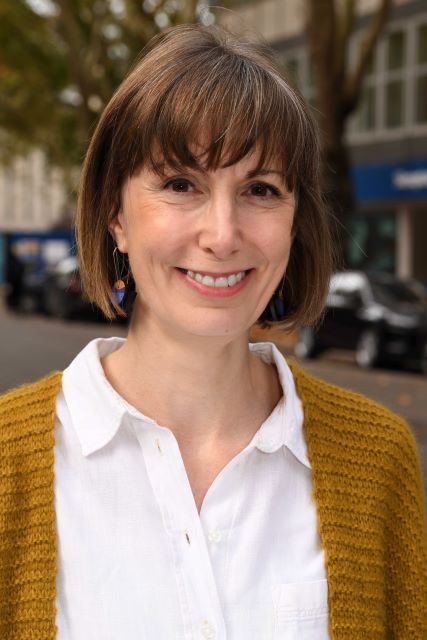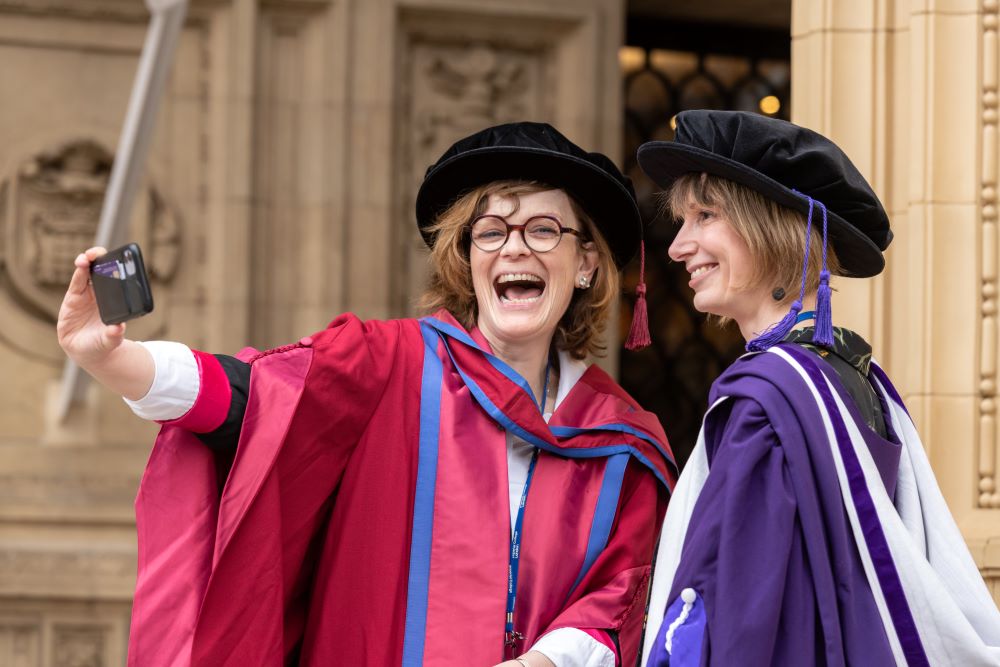“The more rewarding part from all of my career at NHLI is definitely my colleagues. I have never taken for granted what a complete privilege it is to be able to do interesting work with interesting people.”

Dr Leanne Felkin is the Senior Teaching Fellow for the MSc Cardiovascular and Respiratory Healthcare. A researcher turned educator, she shares her journey of transforming scientific expertise and a passion for teaching into a mission to nurture the next generation of cardiovascular and respiratory healthcare professionals.
Can you tell us a bit about yourself? What first sparked your interest in cardiovascular science, and how has that passion evolved into a teaching mission?
I am the Senior Teaching Fellow on MSc Cardiovascular and Respiratory Healthcare, I have been in this role since 2019, but before that I was a researcher at the National Heart and Lung Institute (NHLI) where I completed my PhD. The move to teaching was something of an evolution spurred on by a number of experiences. As a researcher, you naturally take on teaching roles through training and supervision, and so to support and develop these skills, I completed teaching and learning workshops offered by Imperial’s Educational Development Unit (EDU). From there, I attended the EDU’s annual education conference and started looking for more explicit teaching opportunities ‘in the classroom’, as it were. Alongside this, I had also taken up the role as a personal tutor on BSc Medical Biosciences, and outside of work I was a School Governor. And then there was a point when I realised my direction had changed. I noticed that when someone asked what I had been up to, my chat was mostly related to teaching. It was then that I started looking seriously at teaching roles.
What aspect of your course do you enjoy the most?
There are two aspects I enjoy and value. I really enjoy the opportunity the course gives me to remain engaged with all the research we do at NHLI and to collaborate with colleagues across both cardiovascular and respiratory divisions. As the module lead for the Research Project module, I know more now about the breadth of NHLI’s research than I ever have. It is challenging to work outside your area of expertise, but it also creates space to just enjoy some good science. My last teaching day with the students during the academic year is the final project presentation. There are representatives from nearly all sections and so there is something of an NHLI Away Day feel about it!
On a more personal level, my own role means I walk alongside our students throughout the whole of their journey at Imperial – from when I read their applications to when I watch them walk across the stage at the Royal Albert Hall on Graduation Day. During the academic year, I can see their development and I know where their challenges lie. When they deliver their final presentation, I know how far each student has come and also where they hope to go next. Graduation Day is a high point and I feel genuinely excited when my students cross the stage. Then afterwards, if a student comes to find me to introduce me to their parents or partner, it sounds corny, but it is a lovely moment, an actual happy ending.
What do you hope your students will take away after completing the course?
Critical thinking, curiosity and the confidence to use both.
What has been the most rewarding part of your career at NHLI so far?
This is easy, the more rewarding part from all of my career at NHLI is definitely my colleagues. I have never taken for granted what a complete privilege it is to be able to do interesting work with interesting people.

Dr Leanne Felkin (pictured right) sharing a selfie moment with Professor Mary Morrell on Graduation Day.
What advice would you offer to colleagues who are interested in teaching or contributing more to the field of education?
For training and skills development, visit the EDU pages for workshops and events such as Imperial’s annual Festival of Teaching and Learning and the Faculty’s upcoming PGT Education Day.
For practical opportunities, the easiest way to get involved is with assessment marking. There is much pedagogical debate to be had on assessment and whether it is even necessary, but for the time being assessment is here to stay and so is the work of marking. There is more than enough to go around! Summative assessments are double-marked, so if you don’t have much or any experience you will always have the support of an experienced co-marker. It is a great way to connect and work with colleagues from other sections and divisions.
And finally, is there an interesting fact about you that others might not know?
Many years ago, I used to live in Avenell Road in a house directly opposite the entrance to Arsenal’s Highbury stadium and its iconic East Stand. This was back when Arsenal still played there. We were so close we could actually see into the changing rooms! The glass was heavily obscured but on match days you could tell when the team were in the changing rooms and make out the kits hung up ready for game.
To learn more about the postgraduate programmes offered by the National Heart and Lung Institute, please visit our Postgraduate Taught website.